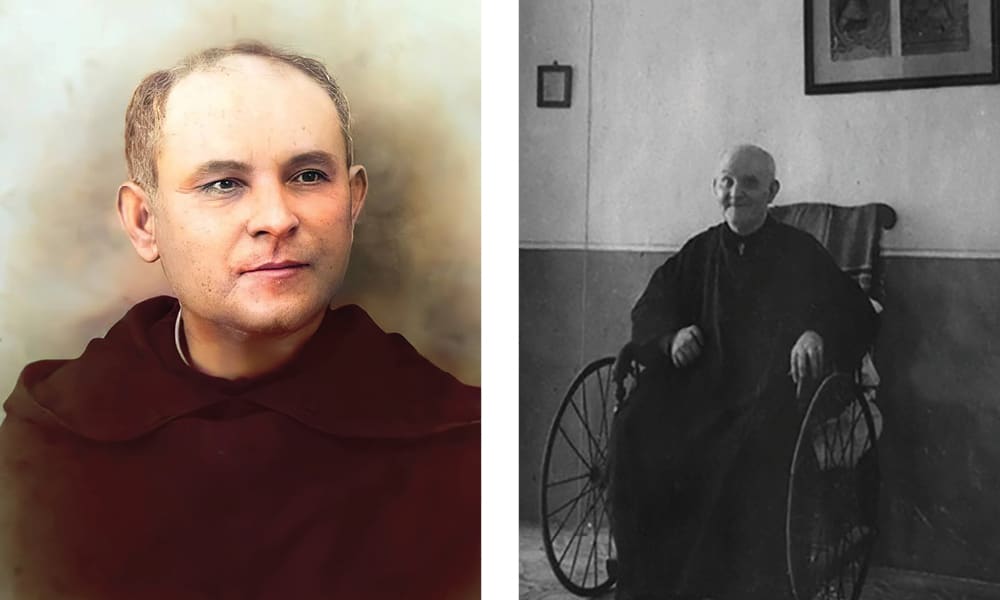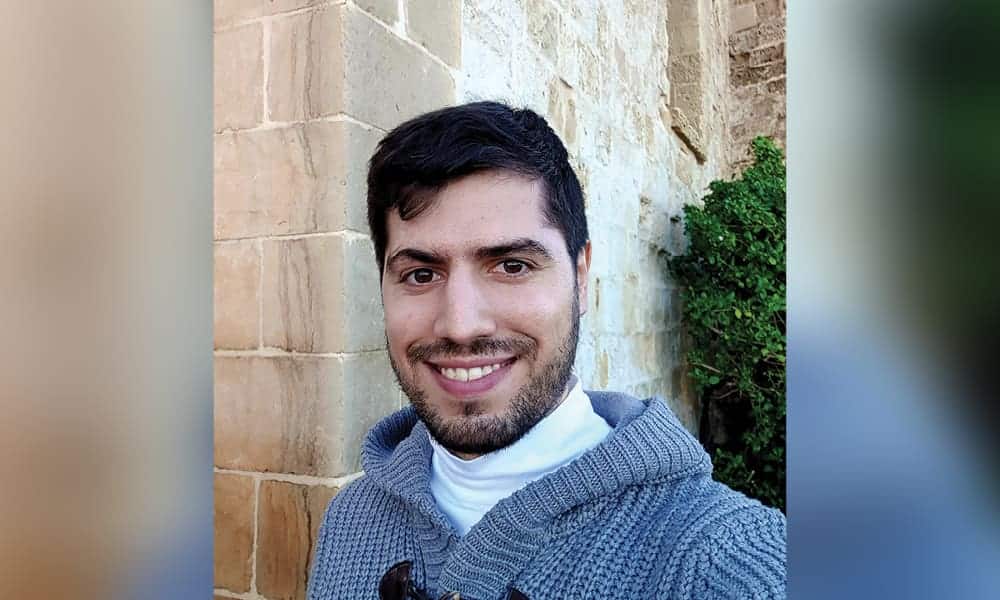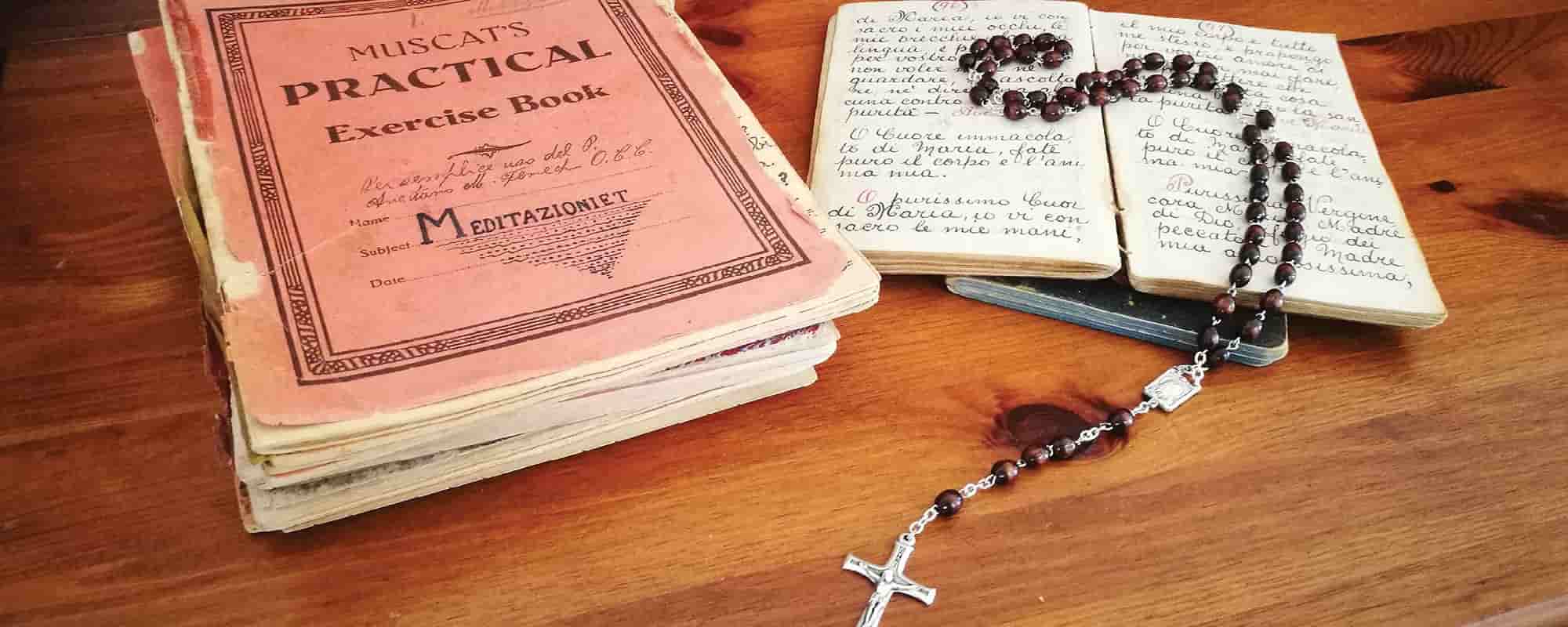Spirituality refers to one’s connection with the divine. Caroline Curmi sits with Warren James Borg Ebejer to discuss his faith and the motivations that have fuelled his successful academic pursuits, specifically, his study on the Carmelite friar, Fr Avertan Fenech.
Warren James Borg Ebejer’s academic journey has been fruitful, to say the least. He has spent nine successive years at the University of Malta. While the first four were dedicated to reading for an undergraduate programme in English and a one-year English PGCE, the latter five saw him achieve two master’s degrees: one in English with a focus on Modern and Contemporary Literature and Criticism and another in Spirituality (Carmelite Stream) through the Faculty of Theology. Illustrated below is how it started, progressed, and continues to develop.
A Theological Trail
Borg Ebejer’s inclination towards theology was ever-present. His undergraduate dissertation revolved around the supernatural present in Shakespeare’s Hamlet, specifically the Ghost’s challenge to Elizabethan beliefs about the afterlife. Interestingly, this research highlighted a possibility of Shakespeare having been a cryptoCatholic, that is, a Catholic in disguise.
For his Master’s in English dissertation, Borg Ebejer analysed the Madonna’s presence in early 20th and 21st century literature. While T.S. Eliot’s poetry purifies the image of womankind by revealing a silent yet active Virgin Mary, James Joyce focuses more on mother wounds and dethroning oppressive nurturers in A Portrait of the Artist as a Young Man and Ulysses. Unconscious juxtapositions of motherhood and myth come out in Virginia Woolf’s Mrs Dalloway and To the Lighthouse, while Colm Tóibin dares to portray an unbelieving Mother of Christ in The Testament of Mary.
It was during this point in his studies that Borg Ebejer, having seen a Facebook post about Bible study at the Carmelite Institute of Malta, came into direct contact with the Carmelite Order and its spirituality. There he met two friars – also lecturers at the University of Malta, who introduced him to the Master’s in Spirituality course they were running. ‘I took it exactly after I finished the English one,’ Borg Ebejer says.
Speaking about Carmelite spirituality’s Marian nature, he explains how the Madonna is the model upon which the Carmelite Order is based: ‘Mary is considered to be the first true disciple of Jesus, and Carmelites model their life upon her values and virtues.’ Once hermits in the mountain range of Carmel in the Holy Land, the Carmelites moved into Europe during the Crusades due to persecution.
There, they were formally recognised by the Church, people got to know them better, and monasteries were built; the first Carmelite monastery in Malta was built around 1418. A noteworthy Carmelite in the early 20th century was Fr Avertan Fenech, a friar, priest, and novice master whom Borg Ebejer has based his research upon. ‘His writings on spiritual theology are in old Maltese, but once you start reading a few words, you get the gist of what they’re spelling out,’ he explains. The texts in question were highly oratory in fashion, making for easier reading: ‘These notes would be read in conferences he would hold for his students and novices,’ Borg Ebejer reveals.
Borg Ebejer credits his studies in English for his academic success in theology: ‘In English, you have to study texts, draw comparisons and contrasts, read between the lines, analyse the author’s inspiration, and investigate connections to other works,’ he explains. By adopting tools and methodologies learnt there and applying them to his Master’s in Spirituality, Borg Ebejer not only managed to achieve a distinction in his thesis but was also able to gather a Dean’s List accolade for his work. ‘It really was all there. It was a stepping stone for me,’ he says.
Delving deeper into his analysis of Fr Avertan, Borg Ebejer illustrates the different stages of his research; his first focus was on the biographical context: reading about the socio-politicohistorical context of the time and how religious life was carried out. This was followed by the literary aspect: ‘I’m currently in the friary where he lived and died. We actually have his books in the library, so I could see where he would get his inspiration from or things he would leave out,’ Borg Ebejer reveals. Some interesting findings were made here: ‘Fr Avertan subscribed to paying money to help an orphanage – id-Dar ta’ San Ġuzepp. I also found a new manuscript of a friar who knew Fr Avertan well and documented his life,’ Borg Ebejer enthuses. At another time, he uncovered a new photo while leafing through a book on the 1913 Eucharistic Congress at the university library: ‘I was looking through the photos and recognised one small figure in it,’ Borg Ebejer says. Once Fr Avertan’s identity was confirmed with the book’s publisher, Borg Ebejer was able to determine the friar’s interest and attendance in the Congress.

Images courtesy of Warren James Borg Ebejer
The third and core part of the thesis was focused on Fr Avertan’s Christology and the image of Jesus in his writings. Borg Ebejer identified four of these: Christ the Master, Christ the Healer, Christ the Poor and Meek Lord, and Christ the Eternal Priest and Victim. Fr Avertan conformed to these images, and Borg Ebejer draws on his knowledge to highlight the personal traits of Fr Avertan: ‘He was meek, humble, and obedient, a sought-after spiritual director and confessor.’ An inquiry into the mention of victimhood reveals a tragic turn: at the age of 61, Fr Avertan suffered a stroke which paralysed half his body, leaving him bedbound for the last 11 and a half years of his life. Borg Ebejer highlights Avertan’s personal sacrifice: ‘He couldn’t speak very much, he couldn’t write, and he couldn’t participate much with the community because he had to stay in bed.’ This period coincided with the Second World War, and Fr Avertan was especially fearful of air raids. He had to rely on others to put him in a wheelchair and carry him down into the shelter. An added layer of trauma formed through the abuse suffered under his carer. ‘The nurse who was meant to be taking care of him would admonish and threaten him despite his condition, refusing to change his dressings and causing maggots to fester,’ Borg Ebejer reveals. Once the superior found out about this, the nurse was kicked out. ‘It really was a painful time for him,’ Borg Ebejer admits.
The Next Stage
Due to the discovery of various new findings, Borg Ebejer was able to publish his thesis through Edizioni Carmelitane – the Carmelite Order’s publishing house. Becoming a published author is an achievement that brings Borg Ebejer joy, but the attainment of this goal does not mark the end of his journey. Rather, he is gathering steam for the next step in his academic journey: a doctorate. Admitting that Carmelite spirituality has left a positive impact on his faith and identity, Borg Ebejer now hopes to broaden his research to explore beyond the remits of Carmelite faith, looking at how various faiths connect to one another: ‘It’s like me and English, connecting it to theology. I’m thinking of something a bit more interreligious for my Ph.D.,’ he maintains.
Rounding up his experiences at the University of Malta, Borg Ebejer comments that it was very positive, with the highlight being the Master’s in Spirituality. Having a relatable, person-centred approach, the postgraduate course helped Borg Ebejer deepen his spiritual dimension and allowed him to recognise himself more as a person. ‘It highlighted the common journey that society has everywhere in all of history, moving towards a divine,’ he concludes.






Comments are closed for this article!